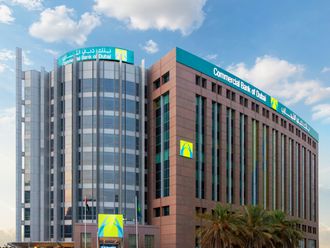Dubai: The UAE banking sector’s profitability has increased as most banks are witnessing a decline in their non-performing assets and significant improvement in liquidity, said a senior official from Institute of International Finance (IIF).
“Soundness indicators of the banking system have improved. UAE banks are well capitalised, their profitability has risen and the liquidity situation eased. It appears to us that the provisioning is on decline,” said Garbis Iradian, deputy director, Africa and the Middle East at the IIF.
While some of the UAE banks’ balance sheets are more exposed to bad debts, the overall coverage is more than 93 per cent of the non performing loans, the loans to deposit ratio has been brought down to 90 per cent from more than 130 per cent in 2009.
“A difficult period of balance sheet repair has been completed. Banks went through a period of rising provisioning and clearing of the bad debts. With stronger balance sheet and rising liquidity levels, banks are ready to increase lending,” said George T Abed, senior counsellor and director for Africa and Middle East of IIF.
The UAE’s banking sector loan growth which languished in lower single digits during the last four years is seen picking up pace this year. Loan growth is poised to rise from 2.6 per cent in 2012 to 7.5 per cent in 2013.
The recovery of asset values is also boosting the liquidity banks. “The real estate market has recovered significantly, although oversupply still hang over segments of Dubai’s housing market,” said Iradian.
The upcoming debt maturities of the rescheduled loans of some of the Dubai GREs are seen as potential risks for banks. IIF believes these GREs will be able to refinance or reschedule these debts on time to avoid a default.
“In the past GREs have been successful extending maturities of their debt payments. We believe the most difficult part in the debt restructuring and rescheduling have been achieved. With strong balance sheets, banks have stronger buffers against NPLs,” said Abed.
IIF expects with cleaner and leaner balance sheets and declining bond yields, Dubai’s corporates and GREs are better positioned to tap bond and sukuk market to meet their financing needs.










